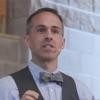Capitol riot. Portland protests. MAGA. Woke. At the utterance of such words, primal emotions and tribal loyalties emerge with sharpness and severity. Words like these have come to represent two alternative universes on either side of reality—as near photographic negatives of one another. Both sides exhibit similar symptoms, revealing shared underlying pathologies; ideology over truth, loyalty over honesty, gnostic revelation over objective thinking. But how do individuals find their way out of such cultish devotion to an ideology or an individual? And to where do they go? There are a growing number of exiles from the Left and the Right searching for a way out.
Perhaps there might be opportunities to build bridges out of ideology and back to reality by coalescing around the concept of the parallel polis. Many Christians will be familiar with this concept from Rod Dreher, who for several years has promoted the development of a parallel polis for the sake of human flourishing and the survival of Christianity. As Dreher explained in The Benedict Option in 2015, “the parallel polis is not about building a gated community for Christians but rather about establishing (or reestablishing) common practices and common institutions that can reverse the isolation and fragmentation of contemporary society” (94).
Dreher’s 2020 book Live Not by Lies puts flesh on this framework by way of extensive research and personal interviews with those who lived behind the Iron Curtain, yet were able to “find within [themselves] and [their] community the means to live in the dignity of truth” (xiv). The authentic accounts Dreher weaves together in the book provide inspirational glimpses into how a parallel polis might function, but also carry with them a humbling indictment of our own apathy and naiveté. Dreher’s biographical sketches in Live Not by Lies are an intriguing preview of the unexpected partnerships that can form in challenging times, and make it clear that the parallel polis is not an exclusively Christian idea.
Forming similar alliances is possible right now, as the concept of the parallel polis gains traction with a growing number of left-leaning voices who are challenging woke ideology. Perhaps new coalitions can transcend the stale left-right categorization and move beyond the exhausting social polarization so prevalent today. Maybe there are bridges to the parallel polis that can be jointly built. In this piece, I’d like to offer a few vignettes of exiles from the Left and from the Right who could coalesce around something meaningful. In part 2, I’ll address some of the promises and perils of joint bridge-building.
Exiles from the Left
A growing number of thinkers who are progressive in political orientation are having serious hesitations with woke ideology, causing them to be rejected in some way by their own. Perhaps it also is fair to say that these are classical liberals of the left who have broken rank with progressivism’s increasing adoption of identity-based thinking.
Take for one, Bari Weiss, former New York Times opinion editor who resigned in July 2020 because of an “illiberal environment” there. She gives her perspective on what we are witnessing in a recent Tablet article:
To understand the enormity of the change we are now living through, take a moment to understand America as the overwhelming majority of its [citizens] believed it was—and perhaps as we always assumed it would be. It was liberal. Not liberal in the narrow, partisan sense, but liberal in the most capacious and distinctly American sense of that word: the belief that everyone is equal because everyone is created in the image of God. The belief in the sacredness of the individual over the group or the tribe. The belief that the rule of law—and equality under that law—is the foundation of a free society.
But Weiss warns, “No longer. American liberalism is under siege. There is a new ideology vying to replace it…[and] it is up to each of us to see it plainly. We need to look past the hashtags and slogans and the jargon to assess it honestly.” This has driven her back to writers like Solzhenitsyn. Weiss recently posted his “Live Not by Lies,” saying “this is the essay I send to every young person suffocated by the new illiberalism who reaches out for advice.”
A similar perspective comes from Michael Rectenwald, once a Marxist NYU professor, now a cancelled independent thinker. Rectenwald also finds inspiration from those who lived behind the Iron Curtain. The nod to Solzhenitsyn and Eastern Bloc dissidents is especially evident in his book Google Archipelago, which uncovers the digital web of Big Tech and government authority. He explains, “As the Gulag Archipelago had once represented the most developed set of technological apparatuses for disciplinary and governmental power and control in the world, so the Google Archipelago represents the contemporary equivalent of these capacities, only considerably less corporeal in character to date, yet immeasurably magnified, diversified, and extended in scope” (30).
In order to navigate this newfound blend of woke capitalism, government surveillance and cancel culture, Rectenwald advises that, “We have to create parallel economic institutions…[and] have to find a standpoint from which you can’t be cancelled….Basically to become independent—an entrepreneur of some sort.” Rectenwald extends the argument to education: “I would say the same in reference to education….We have to create a parallel operating system…for free and open inquiry.”
Weiss and Rectenwald are not the only ones. Other potent critiques of wokeness have come from Helen Pluckrose and James Lindsay’s Cynical Theories, and evolutionary biologists Brett Weinstein and Heather Heying’s DarkHorse Podcast. What this group shares in common is that their rejection of woke ideology stems not from a Christian worldview, but from the realms of rationality, science and classical liberalism.
Exiles from the Right
Much like classical liberals who find themselves at the woke-crossroad, many Christians and conservatives are facing a similar set of hard choices. Yes, there is the perennial task of upholding pure doctrine in the face of ideological and theological challenges from inside and outside the Church, which always places Christians at a crossroads of sorts. But, as I argued in a piece for Public Discourse, what is perhaps even more insidious is the way in which the Right has developed its own extreme positions that mirror far-Left pathologies. Christians rightly critique wokeness for its placement of feeling over fact, ideology over truth, and its lack of logical consistency in relation to objective reality. But these problems have found their way into many conservative circles and Christian churches where gnostic-like conspiracy theories and supposed direct revelations from God are taken as the final authorities in a syncretistic blend of politics, religion, and nationalism. This type of earth-bound political religion that is true for its followers not by fact, but by internal feeling, is not Christianity. It is a poison.
Christians must make a clear and unequivocal distinction between the historic faith and this dangerous substitute that is more pervasive than anyone wanted to admit. This may leave a number of Christians politically homeless, or place them at odds with fellow church members. But this is the way of the Christian exile: never fully fitting in to one world or the other; driven by the importance of living in truth; always mindful of the fact that the eternal, transcendent Kingdom of God is not brought about through earthly endeavors. This may mean that we share more in common than we realized with liberal exiles who are also attempting to live in fact-based reality and who don’t view everything through a political lens.
Exiles on a Shared Journey
There are some commonalities along the shared path back to reality. I see at least three possible areas where exiles from the Left and the Right seem to be resonating.
One, exiles from the Left and the Right value the importance of speaking truth. When the political ascends to become eschatological, as it has for many on the Left and the Right, truth no longer matters, and everything becomes performative posturing. John Jalsevac puts it this way: “Within this eschatological view of politics truth claims are no longer approached as facts to be adjudicated by applying old-fashioned rules of logic and evidence, but rather as tests of loyalty—spiritual loyalty.” Exiles from the Left and the Right see through this game and attempt to speak the truth. Speaking truth is hard, but the truth has inherent power and the more we speak it, the easier it is to speak it again. We too, can find inspiration here from the Eastern bloc dissidents like Aleksandr Solzenhitsyn and Vaclav Havel, who were sustained through their long nights of suffering under Communist regimes by the conviction that living in truth is never in vain.
Two, exiles from the Left and the Right understand the dangers of othering. Categorizing people as sheep or goats, children of light or children of darkness, politically or otherwise is dangerous. These dualistic, gnostic—even Manichean—constructions turn the world into one gigantic and simplistic blame game, with everyone from past and present being ideological winners or losers. Such attempts to don the sacred mantle of the discerner of hearts is a role reserved for God alone. Solzenitsyn’s reminder from the Gulag always stings. “If only there were evil people somewhere insidiously committing evil deeds, and it were necessary only to separate them from the rest of us and destroy them. But the line dividing good and evil cuts through the heart of every human being. And who is willing to destroy a piece of his own heart?” Exiles from the Left and the Right exercise epistemological humility, realizing the corruption of our own nature and the limits of our own understanding.
Three, exiles from the Left and the Right grasp the necessity of downgrading politics. When people find their core identity and ultimate purpose in politics, no one really wins. Politics turns into a zero-sum game of barbaric survival. Historically, Christians have recognized the subsidiarity of politics and the primacy of other, more foundational aspects of human flourishing: family, community, and church. Exiles from the Left and the Right recognizing the limits of politics and how such limits help us recover individual responsibility and vibrant personal agency—and the meaning found in these more basic aspects of the human experience.
These three areas offer some common ground and are worth pondering further. In part 2, I will explore the prospects and perils of this shared journey, and where the common ground might break down.
Joshua Pauling teaches high school history, and was educated at Messiah College, Reformed Theological Seminary, and Winthrop University. In addition to Modern Reformation, Josh has written for Areo Magazine, Front Porch Republic, Mere Orthodoxy, Public Discourse, Quillette Magazine, Salvo Magazine, andThe Imaginative Conservative. He is also head elder at All Saints Lutheran Church (LCMS) in Charlotte, North Carolina.



